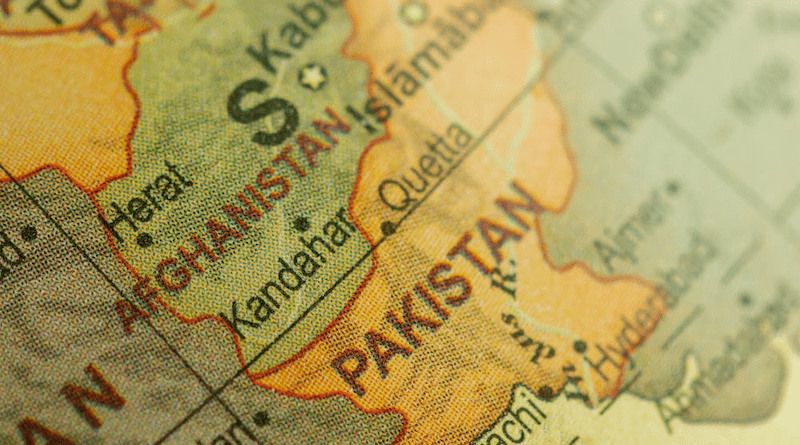Pakistan’s Troubled Frontiers On Both Flanks – Analysis
Pakistan ever since its inception as an independent Nation State in August 1947 has never been at peace with itself or with its neighbours on both its Western Flank and Eastern Flank— Afghanistan and India. The same holds truer in 2023 when despite its economic and political meltdown which should have impelled Pakistan to sue for peace with its neighbours, Pakistan continues in a state of uneasy and strained relations with both Afghanistan and India.
Pakistan was buoyant with its recent success in facilitating the establishment of an Afghan Taliban Government in Kabul. So heady was its political joy that then ISI Chief Lt Gen Faiz (since then replaced and discredited) that he flew into Kabul like Pakistan’s Viceroy and trying to cobble an Afghan Taliban Government of Pakistan’s choice.
In less than two years, the Pakistan Army Chief, General Munir gave a public warning to the Kabul Taliban Government of dire consequences if Kabul did not desist from providing launching pads and safe sanctuaries to Pakistan Taliban TPP involved in serious attacks on Pakistan Army outposts in Pakistan’s Western Frontier adjoining Afghanistan. Last week an attack on Zhob post resulted in Pakistan Army losing lives of 12 soldiers.
Pakistan in 2023 has not only lost hopes of regaining its much desired ‘Strategic Depth’ in Afghanistan with a friendly Afghan Taliban Government in Kabul but ironically Pakistan now stares at an armed confrontation with Afghanistan.
Moe ironically, Pakistan which for decades has indulged in State-sponsored terrorism against India on its Eastern Flank now finds itself in the sorry state of accusing Afghan Taliban Government in Kabul of State-sponsored terrorism against Pakistan. The tables have been turned against Pakistan.
Pakistan on its Eastern Flank with India has never ever had been in a state of peace since 1947. Pakistan despite having been defeated in four wars with India including the second Partition of Pakistan in 1971 War, and its State-sponsored insurgency in Kashmir of last three decades now effectively neutralised in 2023, has still not learnt the lessons that confrontation with India is an eternal losing proposition.
In the nine years of Indian PM Narendra Modi’s regime in which Pakistan stood diplomatically isolated, witnessed two ‘Surgical Strikes’ by India deep into Pakistan, should have logically convinced Pakistani rulers of the futility of endless confrontation with India.
India in 2023 has ‘arrived’ on the global stage as a pivotal geopolitical Emerged Power and the days when United States and China drew strategic equivalence of Pakistan with India are finally over. The Pakistani people have begun to realise this reality seeing India’s tremendous economic growth despite wars and impediments by Pakistan and China but the Pakistan Establishment still stands blinded by delusionary past obsessions.
Contextually, the moot questions that arise therefore are (1) Can Pakistan afford to be in a veritable state of confrontation with both India and Afghanistan? (2) Should Pakistan’s external patrons like China, United States and Saudi Arabia not prevail on Pakistan to adapt to geopolitical realities and make their financial bailing-out of Pakistan contingent on its attempting peace and reconciliation with both its neighbours?
The United States has to a great extent changed its South Asia policy perspectives. While enlisting India as a pivotal partner in Indo Pacific security yet it perceives a lingering strategic utility of Pakistan in relation to Iran and Afghanistan.
Saudi Arabia even under its Crown Prince’s foreign policy directions has seen wisdom in establishing good relations with India since advent of PM Modi in power in New Delhi since last nine years. But it bails out Pakistan financially as a quid pro quo for Pakistan giving it access to Pakistan’s nuclear weapons technology.
China in marked contrast to United States and Saudi Arabia is obsessed with maintaining Pakistan as a Chinese strategic counterfoil against India. To that end, Pakistan has not only ended up in being made use of by China but also ended up under virtual colonial rule by China.
Concluding, what needs added emphasis is that China can in no way shield Pakistan to secure its Western and Eastern Flanks against Afghanistan and India on its misperceived threat perceptions nor in a mediatory position to reconcile Pakistan with its neighbours.
Pakistan thus is doomed and destined to be in a permanent state of political and economic meltdown until geopolitical realities dawn on Pakistan of its dwarfed geographical configuration in the Indian Subcontinent, notwithstanding its nuclear weapons arsenal. Pakistan can ensure its security on both flanks by being at peace with itself and being at peace with its neighbours.

